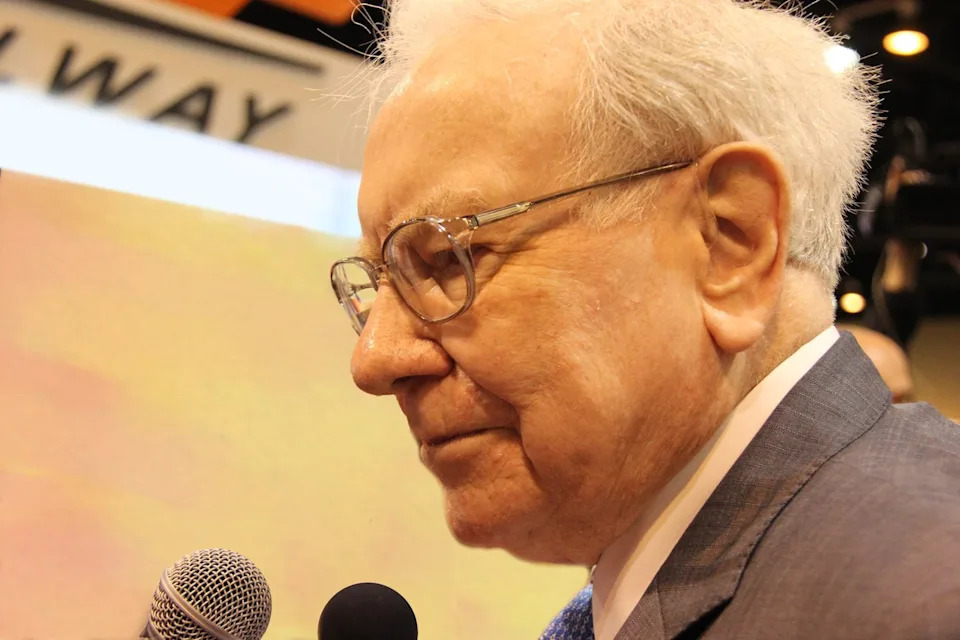Key Points
Recession concerns are ramping up, with more than half of U.S. investors feeling "bearish" about the upcoming six months, according to a May 2025 survey from the American Association of Individual Investors.
Experts are also issuing warnings about the economy, with J.P. Morgan analysts predicting a 60% probability of a recession in 2025 -- up from their previous estimate of 40%. Goldman Sachs also hiked their estimates from 20% to 45%, rattling some investors.
To be clear, we're not in a recession yet, and despite increased risk, there's no promise we'll face one at all. But it's still smart to prepare just in case, and there's one index fund with glowing recommendations from Warren Buffett that is all but guaranteed to survive even a severe recession or market crash.

One of the safest investments you can buy right now
If you're looking for an unshakeable investment with a flawless track record of surviving periods of economic uncertainty, the S&P 500 index fund is a fantastic choice.
An index fund is a collection of stocks that track a particular stock market index -- like the S&P 500 (SNPINDEX: ^GSPC) -- and there are a few clear advantages of investing in this type of fund:
During uncertain times, the safety and stability of the S&P 500 index fund can be reassuring for many investors. While there are never any guarantees in the stock market, this investment has a decades-long history of surviving every recession, bear market, and crash it's ever faced -- and it's very likely to continue that trend in the future.
Warren Buffett's best advice for investors
The S&P 500 index fund, specifically, is one of legendary investor Warren Buffett's most recommended investments. "In my view, for most people, the best thing to do is to own the S&P 500 index fund," he emphasized in Berkshire Hathaway 's annual shareholders meeting in 2020.
Prior to that, in 2008, he even bet $1 million that an S&P 500 index fund could outperform a group of five actively managed hedge funds over 10 years. His investment earned total returns of close to 126% in that time, while the five hedge funds averaged returns of around 36%. Even the highest-earning hedge fund only earned total returns of around 88%, still falling significantly short of the index fund.
Despite its relative safety, this investment can be a powerhouse given enough time. The S&P 500 itself has produced a compound annual growth rate of around 10% per year over the past century. This means that while you likely won't earn 10% returns every single year, the annual returns have historically averaged out to around 10% per year over decades.
Let's say you invest in an S&P 500 index fund while earning a 10% average annual return. If you were to invest, say, $300 per month, here's approximately how much you could accumulate over time:
|
Number of Years |
Total Portfolio Value |
|---|---|
|
20 |
$206,000 |
|
25 |
$354,000 |
|
30 |
$592,000 |
|
35 |
$976,000 |
|
40 |
$1,583,000 |
Data source: Author's calculations via investor.gov.
Now, there is one considerable downside of the S&P 500 to consider before you buy: It can never earn above-average returns. This investment aims to follow the market's performance, so it can't beat the market.
That's not necessarily a deal-breaker for many investors, but it could limit your earnings compared to building a custom portfolio of individual stocks. That approach requires more time and effort to do well, but if you're looking to maximize your earnings in the stock market, individual stocks can often outperform the S&P 500.
Nobody knows where the market may be headed in the coming months, but an S&P 500 index fund is a Warren Buffett-approved investment that's almost certain to survive even the worst downturns. The sooner you begin investing, the more you can potentially earn over time.
Before you buy stock in S&P 500 Index, consider this:
Consider when Netflix made this list on December 17, 2004... if you invested $1,000 at the time of our recommendation, you’d have $613,951 !*
Now, it’s worth noting Stock Advisor ’s total average return is 948% — a market-crushing outperformance compared to 170% for the S&P 500. Don’t miss out on the latest top 10 list, available when you join Stock Advisor .
